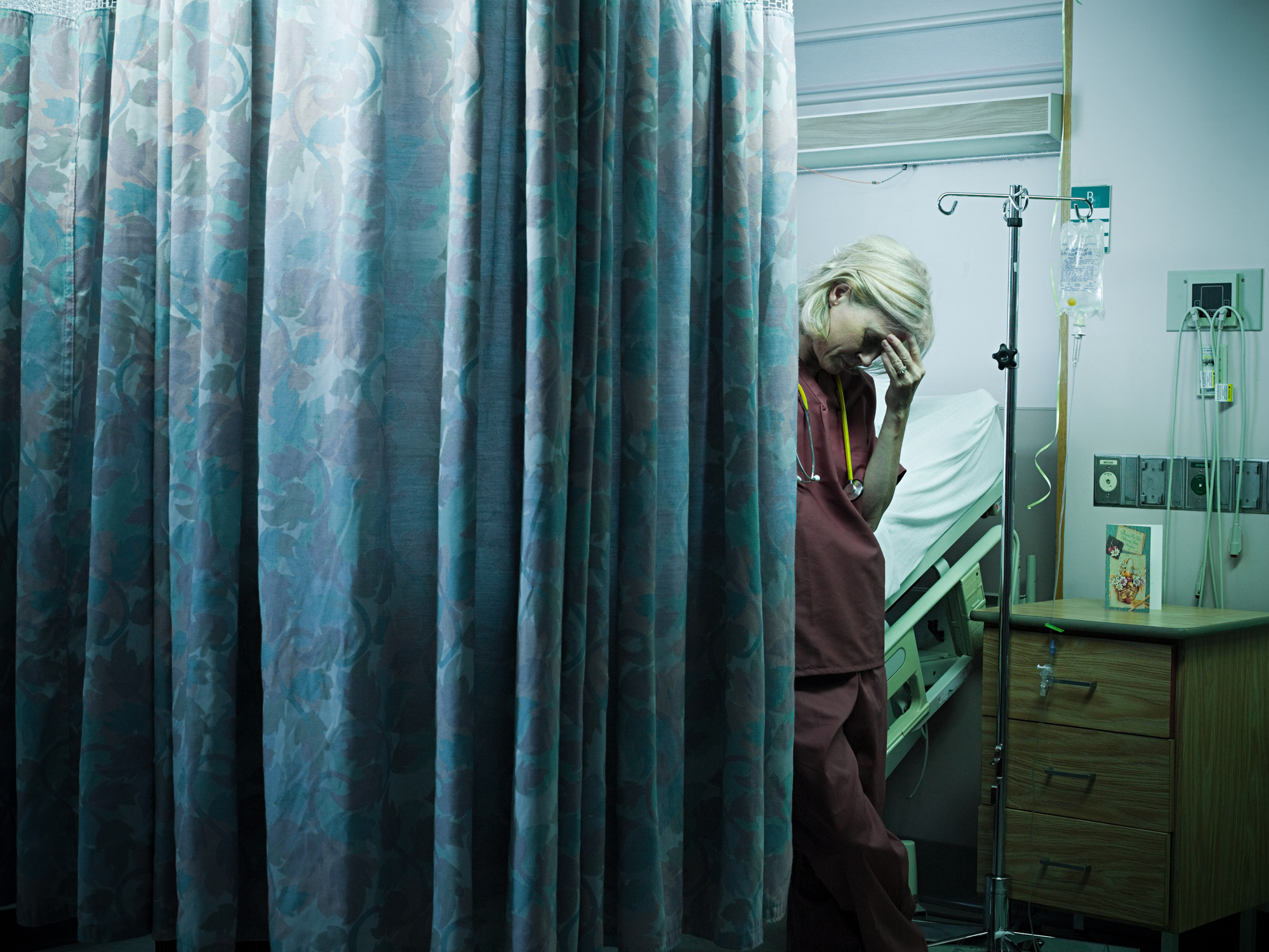Society and Culture
Concern over the stigma related to seeking mental health services can be overwhelming for clinicians.
Stigma and Stereotyping
When explicit and implicit biases are not confronted and neutralized, stigma is sustained and can exert harmful effects on clinicians of all kinds. Despite some progress in the perception of mental health issues, stigma around this topic is still rampant in American medicine and can lead to exclusion, discrimination, demotion, and dismissal. There is often misunderstanding and blatant bias about what mental health conditions actually are and many health care professionals acquiesce to what is modeled in training and purposely don’t complain about their distress, especially if it can be labeled “mental.” For too many, emotional exhaustion is not only a sign of weakness but “proves” they are unfit to be professionals. Commonly, many adapt by overwork, perfectionism, intolerance, and hypercriticism of themselves and others.
Clinicians may also fear for their careers, since admitting to mental health conditions, or acting differently than the norm, may put their training or jobs at risk. Some research suggests that state health professional licensure boards approach mental illness with more scrutiny and bias than physical illness on licensing and reentry applications. Thus, clinicians may be less likely to seek appropriate treatment for fear of sanctions or other repercussions. Legitimate fear about licensure, credentialing, and hospital privileging weighs heavily on many clinicians who fear they could lose everything they’ve worked so hard to achieve.

Recently, the American Medical Association encouraged state medical boards to recognize that the presence of a mental health condition does not necessarily equate with impaired ability to practice medicine. The prevalence of mental health stigma doesn’t just result in negative stereotyping— it promotes harm, impedes access to appropriate early intervention, and can result in policies that enable stigma to persist. Labeling clinicians who have mental health conditions or other culturally unacceptable traits or conditions further fosters environments that impede clinicians’ ability to become and remain well.
For these minimal reasons, many clinicians are living with correctable mental health conditions and other problems in silence—afraid for their jobs, fearful of internalizing that they are “weak” or unteachable, and avoiding health care.
Resources on Society and Culture
More Resources
Stigma, stereotyping and unrealistic expectations may worsen burnout for clinicians of all types.
Societal and Patient Expectations
Human relationships are complex and involve varied degrees of unrealistic expectations. This is true for clinicians and their patients. While clinicians need to be held accountable for the adequate and inadequate care they provide, they too often face intense scrutiny and unrealistic expectations from patients who may not and sometimes cannot, fully understand the limitations that life and the health system places on fallible clinicians and their supporting system.
Some media can place expectations on clinicians that worsen their dilemmas. Physicians, for example, are often depicted as machines that can face constant cognitive, clinical, and energy-depleting life and death challenges, without restorative opportunities, especially sleep. Generally, physicians, dentists, pharmacists, and nurses are presented in an omniscient manner whose idealization easily leads to unrealistic expectations from patients and society at large. In many media, clinical perfectionism is portrayed as a real possibility with little to no depiction of adverse effects. These include hyper-aggressive interventions on patients and disabling perfectionism for the clinician. Living up to these unrealistic expectations can lead many health care professionals to feel inadequate and disappointed. Like all humans, clinicians need permission and a safe opportunity to recover and heal from the distress they face. They also need a supportive environment that allows, encourages, and implements a thriving work environment.
Bottom Line
Bias manifested in stigma, unrealistic expectations, discrimination, and stereotypes can play a role in determining if and when a clinician is at greater risk and can suffer from the burnout syndrome. Health care leadership and organizations must begin to foster a culture of safety, non-judgmental treatment, honesty, and transparency in which seeking help for emotional health conditions is encouraged and supported. State licensing boards should also consider their role in promoting an inclusive culture void of stigma in which clinicians can seek help without the immense fear of being unfairly and unnecessarily scrutinized, or of losing their credentials.


 If you are suicidal and need emergency help, call 911 immediately or 1-800-273-8255.
If you are suicidal and need emergency help, call 911 immediately or 1-800-273-8255.